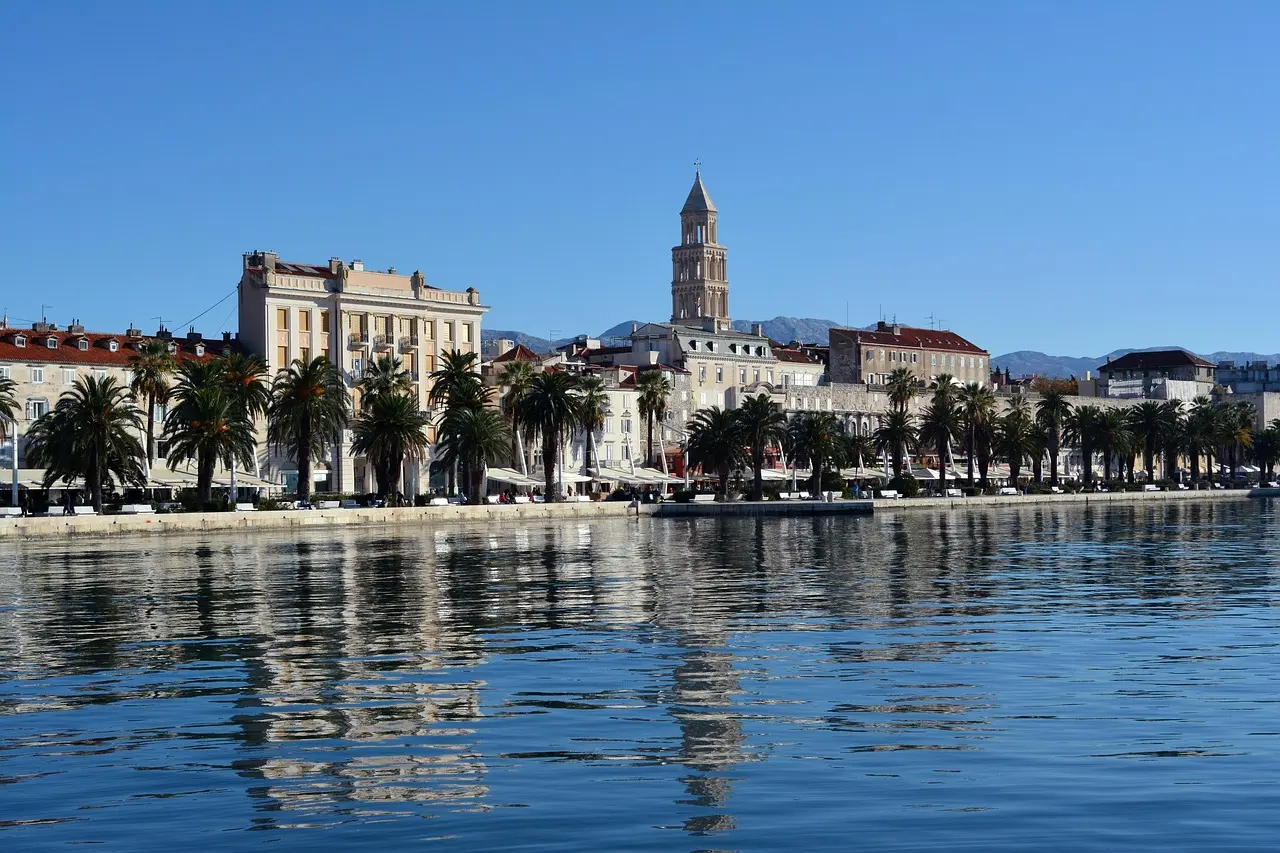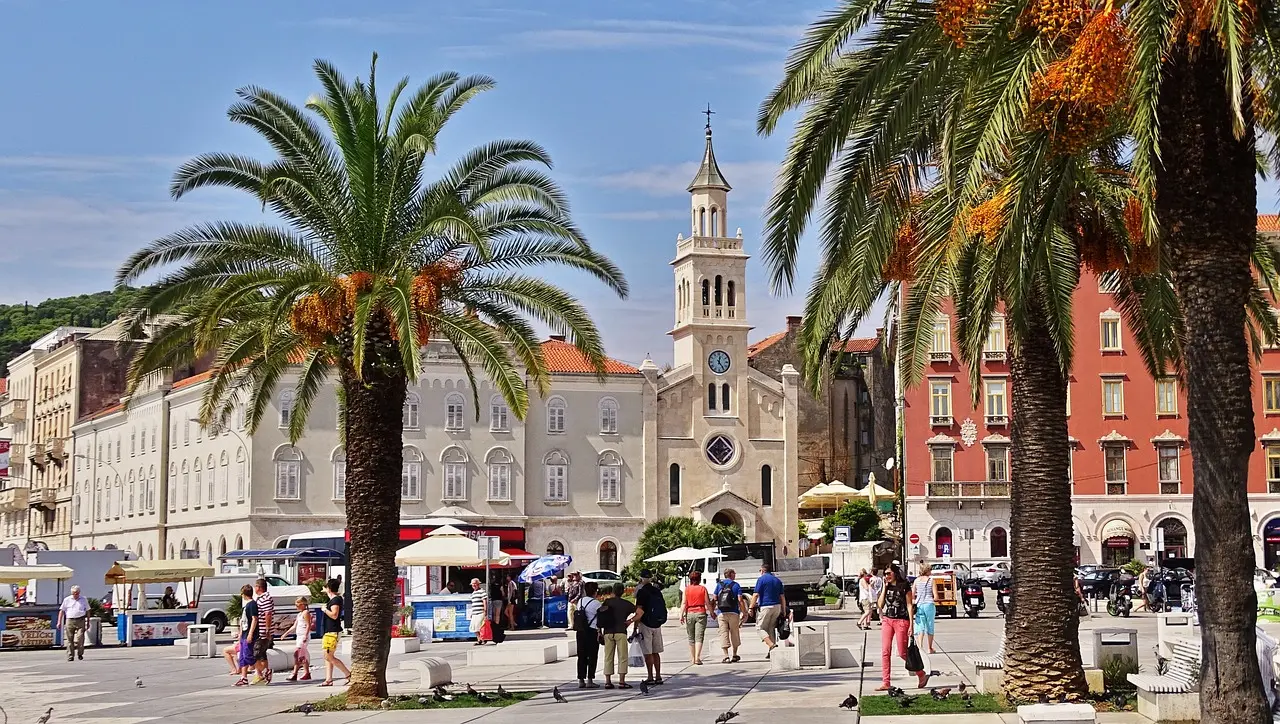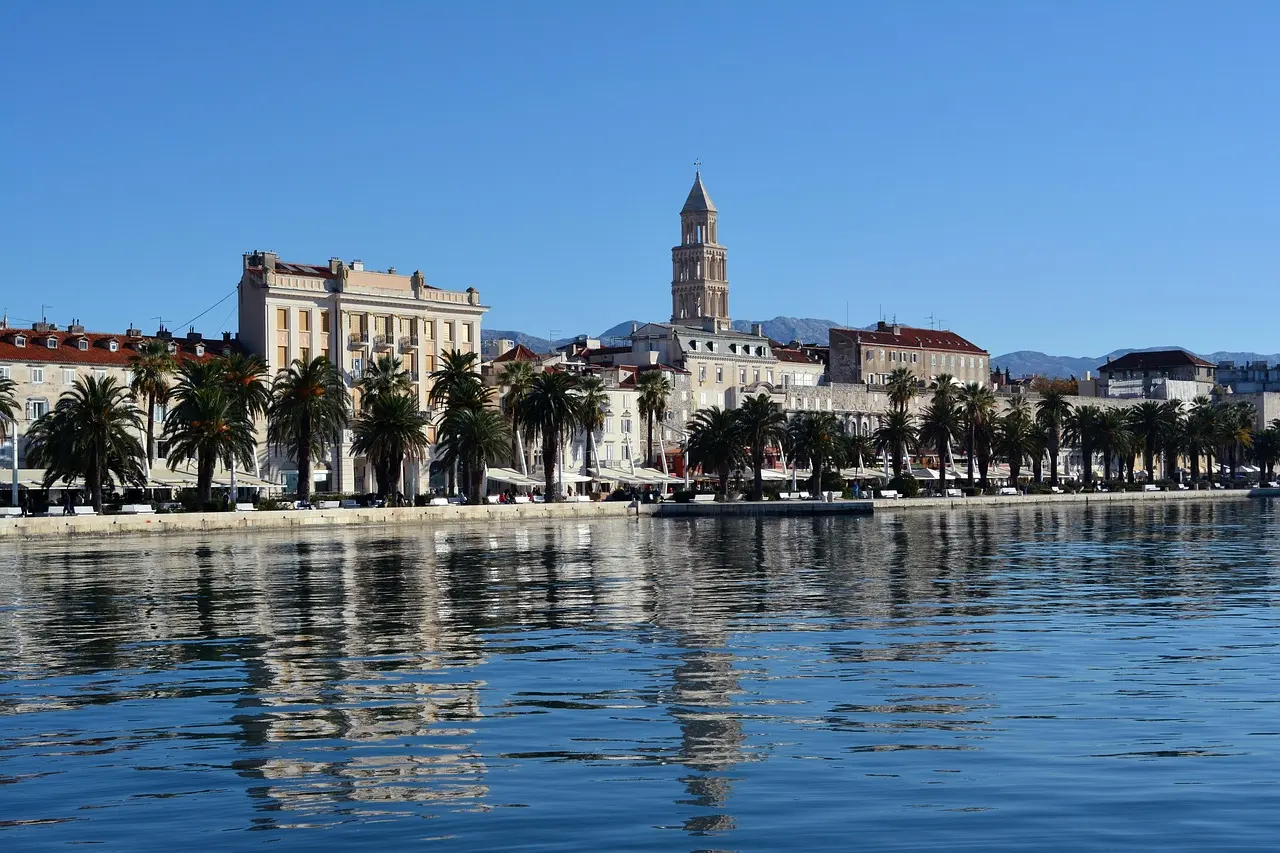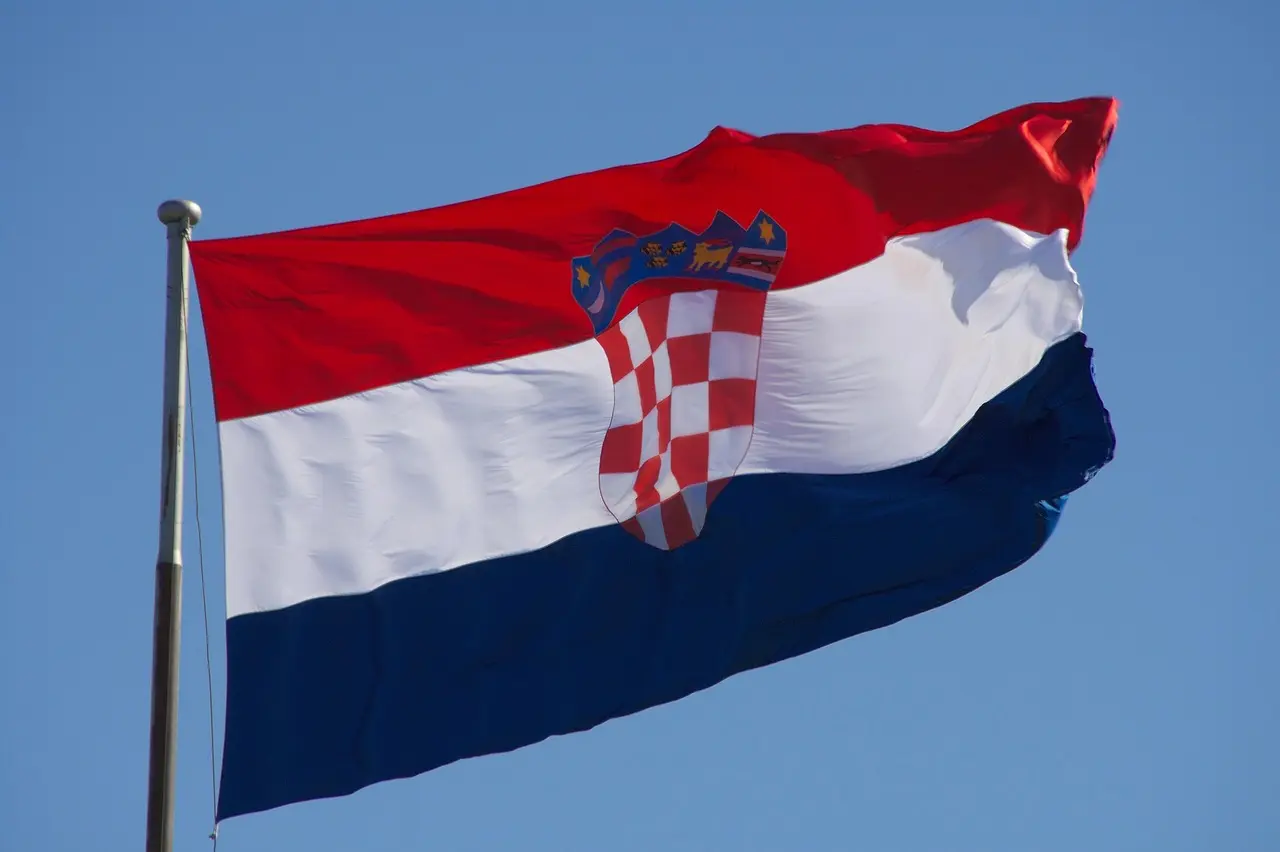Is Croatia Safe to Travel in 2025? What Every Tourist Should Know
May - 2025

Planning a European trip to Croatia? You'll be glad to know that Croatia ranks 15th on the Global Peace Index. This makes it one of the safest countries in the world that outranks the UK (37th) and the USA (131st) by a lot. The beautiful Adriatic country has one of Europe's lowest crime rates, making it perfect for travelers who want both scenic views and peace of mind.
The safety statistics for tourists in Croatia in 2025 tell a clear story. Croatia stands as Europe's second-safest country for nighttime solo walks with an impressive score of 77.4, right behind Slovenia. The country managed to keep strong safety standards since joining the European Union in 2013. American tourists worried about overseas travel can feel at ease here. Croatia's political stability has remained solid since it gained independence in the early 1990s.
This piece gives you practical safety tips for different types of travelers. You'll learn about minimal risks like pickpocketing in busy tourist spots and get essential tips. Your Croatian experience should be memorable and worry-free.
How safe is Croatia in 2025?
The hard data shows Croatia ranks among Europe's safest destinations in 2025. The country sits at an impressive 15th place out of 163 nations in the 2024 Global Peace Index. This puts Croatia ahead of many popular European destinations like Germany, Italy, the United Kingdom, and France. Croatia's excellent safety record has earned it a spot among the world's 25 safest countries over the last several years.
Croatia stands out as Europe's safest country to walk alone at night. The country has topped this category among 41 European nations for two straight years. This makes evening walks through historic city centers both beautiful and safe.
The United States gives Croatia its "Level 1" travel rating, which suggests visitors should just "exercise normal precaution". This rating represents the lowest possible risk level and confirms Croatia's status as a secure travel destination.
Recent Eurostat data backs up Croatia's safety credentials. Their 2023 figures name Croatia as the European Union's safest country, with the lowest rates of reported crime, violence, and vandalism. The statistics show that only 1.2% of Croatians at risk of poverty reported such problems in their neighborhoods—the lowest among all EU member states.

Tourist-specific crime rates stay relatively low. While pickpocketing happens in busy tourist spots, it's less frequent than in other European destinations. The US State Department notes that violent crime rarely occurs, though isolated incidents can happen just like anywhere else.
The numbers paint a clear picture: Croatia's crime index sits at just 24.6, offering peace of mind to travelers of all types. The country's resilient infrastructure and tourism-dependent economy mean visitors usually receive a warm welcome.
Croatia's safety goes beyond just crime statistics. The country maintains political stability and provides effective emergency services with good healthcare facilities in major cities.
Safety for different types of travelers
Croatia is remarkably safe whatever type of traveler you are. Different travelers need to think over unique aspects of their trip. Here's what you should know based on your travel style.
Solo travelers can breathe easy in Croatia. The country ranks among Europe's safest spots to explore on your own. Women traveling alone face minimal concerns, though they might encounter some cat-calling in certain areas. A polite but firm response usually does the trick if someone tries to start an unwanted conversation. The country is safe overall, but solo women should stick to basic precautions. Stay in well-lit areas at night and keep track of your belongings.
Croatia welcomes families with open arms, but parents need to stay alert about their surroundings. The country's infrastructure might pose some challenges. Many buildings don't have proper stair railings, beaches often lack lifeguards, and sidewalks can run too close to traffic. You should check if your accommodation has elevators before booking, especially with strollers - many historic buildings don't. Notwithstanding that, Croatia is perfect for families. The country brims with kid-friendly activities and places to stay.
LGBTQ+ travelers can relax knowing Croatia legally recognizes same-sex marriage. But since about 80% of Croatians are Catholic, smaller towns and villages tend to be more conservative. Same-sex couples might get a few stares if they show affection in rural areas. Zagreb has the best gay scene, and both Zagreb and Split light up with Pride festivals every June.
Croatia's crime rate is so low that locals often leave their doors unlocked. The biggest problem is pickpocketing, but it happens nowhere near as much as in places like Paris or Barcelona. Then all you need is to keep your valuables safe and stay aware in tourist hotspots to enjoy a worry-free visit.ž

Practical travel safety tips for Croatia
Smart precautions will boost your Croatian adventure in 2025, despite the reassuring safety statistics. These practical tips will help keep your trip trouble-free.
Protect your belongings wisely. Croatia boasts low crime rates, but tourist hotspots sometimes experience petty theft. Your valuables belong in your front pocket or secure bag. Hotel safes offer extra protection when you need them. Avoid showing off expensive items. Zagreb requires extra vigilance, especially near the Bus Terminal. King Tomislav Square becomes unsafe after dark.
Your taxi rides need simple safety steps. Take a photo of the taxi number and share it with someone. Ridesharing apps provide built-in tracking features. Licensed taxis with working meters provide reliable service. Uber and Bolt offer predetermined fares as safer alternatives. Zagreb's strip clubs have a dark side - tourists face threats after receiving bills for thousands of euros.
Include daily excursion in your itinerary with trusted companies like Junior Excursions. The company's professional service makes boat tours along Croatia's stunning coastline completely safe.
Croatia's beautiful beaches need some safety awareness. Sea urchins lurk in shallow waters, so water shoes become essential protection. Beach flags tell you everything: green means safe swimming, yellow signals caution, red warns of danger. The Adriatic Sea stands proud as Europe's #1 ranked water quality for swimming.
Croatian tap water ranks 5th in Europe for quality, making it completely safe. The country stands among the world's 30 richest nations in water resources.
Medical emergencies need quick action - dial 112 for help. Major cities offer better healthcare access, with satisfactory services nationwide. EU citizens can use their EHIC card for subsidized care. Other visitors need proper travel insurance.
Your important documents deserve backup protection. Keep photocopies handy and store digital versions online.

Croatia - must visit country
Croatia consistently ranks as one of Europe’s safest travel destinations — and 2025 is no exception. With low crime rates, a strong placement on the Global Peace Index (15th globally), and leading statistics for nighttime safety, the country offers a secure environment for all types of travelers. Whether you're a solo adventurer, a family with kids, or an LGBTQ+ traveler, Croatia welcomes you with openness and ease — especially in larger cities like Split, Dubrovnik, and Zagreb. As with any destination, basic precautions apply: keep an eye on valuables in busy areas, and rely on licensed, well-reviewed service providers.
Trusted organizations back Croatia’s reputation — the US State Department classifies it as Level 1 (the safest level), and Eurostat ranks it as the safest EU member state. For excursions, choosing experienced providers like Junior Excursions, who’ve been operating for over a decade, adds another layer of reliability. Whether you’re walking Dubrovnik’s medieval walls, exploring national parks, or enjoying a day at sea, Croatia offers not just beauty and adventure, but also peace of mind — so you can focus on experiencing the best the Adriatic has to offer.